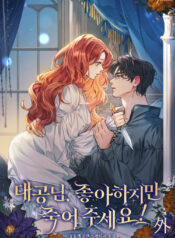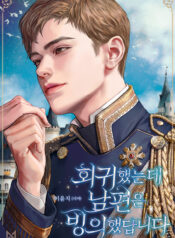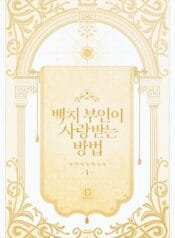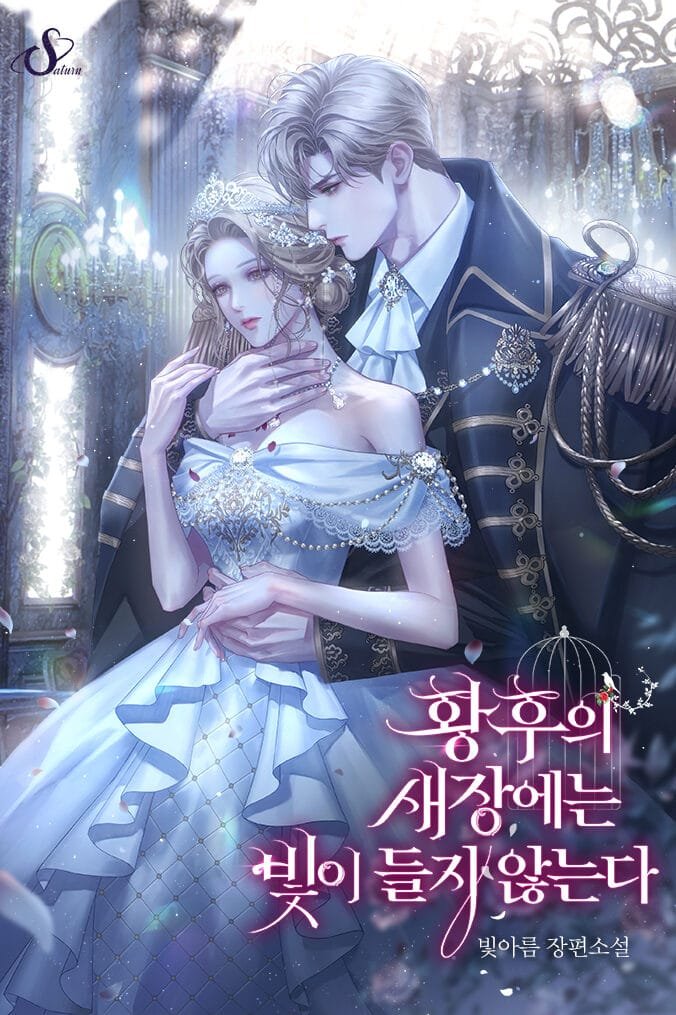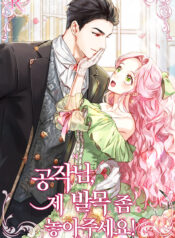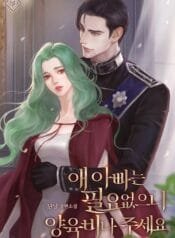“But this humble consort is too faint of heart to watch any longer.”
The concubine said, pretending to shield her eyes.
Only then did the Emperor gesture towards the court lady.
The moment the pressure on her wrist eased, Bu-yeong hastily withdrew her hand. What had once been a pale hand was now flushed red, as if it had just been pulled from a steaming cauldron.
The wooden basin was replaced with a golden one filled with fragrant water and floating flower petals. The basin held just enough warm water for a proper foot bath.
Any sense of shame Bu-yeong had felt had already vanished. Only the stinging pain in her hands consumed her now.
The concubine extended one foot as if to say, ‘Let’s see how you manage this,’ and Bu-yeong carefully took hold of it.
She removed the silk slipper and jokui (a cloth wrapping for the feet) one by one, then gently placed the delicate foot into the basin.
Bu-yeong poured the floral-scented water over the concubine’s foot, sweeping her fingertips carefully and slowly along the sole as though handling precious jade.
“Ah!”
When the concubine let out a soft whimper, the Emperor’s brows furrowed.
“What is it?”
“It seems a hangnail on Her Highness’s hand grazed this humble consort’s foot.”
“Useless wench. Had the concubine’s foot been injured, I would’ve had your nails torn out.”
“Your Majesty, my foot is unharmed.”
The concubine replied quickly. As Bu-yeong silently lifted the concubine’s foot out of the water, the Emperor sneered.
“Even the Empress’s hands are unsightly.”
Bu-yeong’s hands, holding the delicate foot, briefly paused. But she forced her expression to remain composed and reached for the clean muslin cloth prepared beside her.
Using the cloth, she gently patted dry the concubine’s soft instep and sole, then slipped the jokui back on.
Each movement, executed with practiced ease, made her appear more a dutiful court lady than the Empress herself. Yet there was not the slightest trace of shame on Bu-yeong’s face.
‘I’m Empress in name only. There’s no need to let something like this bother me.’
Just as she finished slipping the silk slipper onto the concubine’s foot with flawless precision, the Emperor’s lips twisted—then quickly returned to their original state.
Sensing the Emperor’s displeasure, the senior eunuch, one of his closest attendants, approached, clasping his hands together respectfully, and spoke in a low voice.
“Your Majesty, it is time for the morning audience.”
“So it is already.”
When the emperor rose from his throne, everyone fell prostrate to bid him farewell properly.
A moment later, when the concubine stood up, the other ladies-in-waiting followed her example. She took a few steps before stopping and casting a sidelong glance at Bu-yeong, who was standing behind her. She sneered.
“You’re more tenacious than I thought.”
Eager to earn her favour, the ladies around her quickly added their own remarks.
“She must think that if she endures long enough, her title will be restored.”
“She has no child, and her family has already fallen — what could she possibly be holding on to?”
Bu-yeong kept her eyes fixed on the ground. Perhaps losing interest, the concubine soon turned away and left.
It was only after everyone had left the guest hall that Bu-yeong finally took a step forward.
At that moment, her vision turned hazy and her head spun. She couldn’t remember the last time she had eaten a proper meal. She was so weak that she was experiencing regular dizzy spells.
Steadying herself, Bu-yeong took a deep breath to regain her composure, then stepped outside.
She passed many people as she made her way from Gwanggeon Palace toward the Cold Palace, yet not a single one bowed in greeting.
But Bu-yeong wasn’t the least bit offended. In fact, she was relieved.
‘At least no one threw stones at me today. …Still, the weather’s grown quite cold. I wonder how I’ll survive this winter.’
Everyone in the palace received a stipend according to their position.
Young maids and low-ranking eunuchs were given beans or dried fish, while higher-ranking court ladies and lesser consorts received rice or cloth. Those of noble status, such as the Noble Consort, were given silk and silver.
Of course, the necessities of daily life, such as clothing and provisions, were supplied seasonally by the Naemubu (the department responsible for overseeing the internal affairs of the royal palace).
However, Bu-yeong had been cast out and she received no stipend, let alone proper food or clothing.
Even if she desperately pleaded for just a bite to eat, it was all in vain.
“Could you not spare even a single slice of radish? I’ve gone three days now without a morsel to eat…”
“Your Majesty the Empress! Even if it’s a rotten radish, I cannot give it to you freely. Pay for it. Otherwise, people will say I aided a criminal, won’t they?”
Because of her, her family had fallen on hard times and even distant relatives who used to visit occasionally had cut all ties. Bu-yeong had no means of earning money.
By some stroke of luck or perhaps not, she was given a job by the general labour bureau. Unfortunately, the wage was less than half of what a susa-i received.
Even worse, it was a task that the susa-i themselves avoided, it was gruelling and undesirable.
However, Bu-yeong could not afford to be picky. Even a handful of shriveled beans from the Naemubu required payment. And not at the going rate, but at three or four times the going rate.
She needed rice to fill her empty belly, coal to heat her room and water for washing, clothes to cover her body, and blankets to sleep under.
With her meagre earnings, she couldn’t afford any of these things properly.
‘I don’t even know if I’ll survive this winter… yet they still call me ‘Empress’ as if it means something.’
Bu-yeong stopped and let out a bitter, self-mocking laugh.
Soon, a wind sharp enough to sting the skin blew against her body. She hunched her shoulders tightly and resumed walking, blowing warm breaths into her hands periodically to thaw her frozen joints.
After walking for about half a sijin (roughly one hour), the faded outline of a grey rooftop came into view, worn and discoloured with age.
The closer she got, the clearer the cracks became.
This ruin of a place was the Cold Palace—Bu-yeong’s place of residence.
Creak—
The door groaned weakly as Bu-yeong pulled the handle.
Once inside, she quickly secured the latch to keep out the wind.
The room was empty except for a bed, a table and an old chest. There was no hint of warmth.
“Ah… another spider’s come down.”
She looked up at the cobweb in the corner of the ceiling, then sat down on the wooden chair.
The chair creaked louder than usual that day.
As the wind blew through the gaps in the door, brushing against the silken threads, the black spider swayed back and forth, performing acrobatics.
Bu-yeong rubbed the goosebumps rising on her arms and turned to look at the brazier on the floor.
It was blackened with soot, and inside was nothing but a pile of gray ash.
‘It’s so cold. Should I go to the Naemubu and buy some coal? No… If I use up money now, what will I do when the cold truly sets in? And I still need enough to visit Father.’
She could never spend money carelessly, especially when she thought about her father being held prisoner in the dungeons.
The guards would only allow Bu-yeong to visit him if they were paid.
She went over to the bed, sat on the edge, and slipped her hand beneath the blanket. Her fingers soon found the sharp edge of a wooden lunchbox.
As soon as she pulled it out and opened the lid, two lumps of barley rice came into view.
They were so small that even one of them was smaller than a five-year-old’s fist.
Buyeong split one of the lumps in half, putting one half in her mouth and tucking the other half back into the lunchbox. She then slid the box back beneath the blankets.
This was a meal suited to her current state.
Meat was a luxury she could no longer even dream of. On truly unbearable days, she would sometimes find discarded boiled anchovies that had been used for broth and then thrown away, which she would use as a side dish.
She had tried planting beans in the hope that she would have an abundant supply of food.
But one day, while she was out working, someone dug up the entire plot. The beans she had carefully planted were beyond saving.
This happened several times, and Bu-yeong eventually gave up on tending a garden altogether.
‘Still, I suppose I should be grateful I’m not starving.…At first, I thought, how could anyone eat this every day?’
Bu-yeong had once lived a life of privilege as the cherished daughter of the Prime Minister, shielded from hardship.
As the only child of the prime minister, she was adored and grew up in luxury, never getting so much as a drop of water on her hands.
Every meal consisted of rice and fine cuts of meat, and with every change of season, she received a new set of silk garments.
Back then, she accepted all of this as normal and never questioned it. But looking back now, she could only think about how extravagantly she had lived.
It left a bitter taste in her mouth.
She stared quietly at the blanket now covering the lunchbox.
The rice had long since gone cold, but unwrapping it would expose it to the chilly wind and make it even colder, to the point where it would make her gums ache.
Worrying about her next meal had become her reality.
As she tried to smooth out the wrinkled blanket, her hands suddenly froze.
The rough, dry skin on the back of her hand caught her attention.
A hangnail stuck out beside her thumbnail and the skin on her palm had peeled in places, exposing the red flesh underneath.
Constantly having to soak her hands in water had caused her to develop eczema, resulting in her skin peeling.
“Even the Empress’s hands are unsightly.”
She gave a bitter smile as the Emperor’s earlier words came to mind.
Ever since she had been banished to the Cold Palace, her hands had never had a day’s rest.
No sooner were they dry than they were wet again, and fresh wounds formed before the old ones had time to heal.
How had the Prime Minister’s cherished daughter ended up in such a state?
Her family, who had once been her pillar of strength, had fallen into ruin, and the Emperor, who had once treated her like the most fragile of treasures, had turned his back on her and denied their past altogether.
“I don’t have time to wallow in useless sentiment. If I want to earn money, I have to work.”

